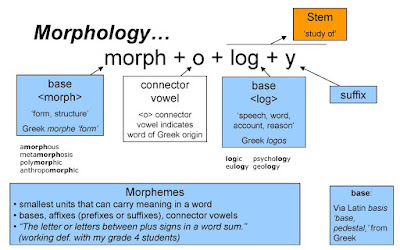Semantics: Reference
REFERENCE
Reference (Extension) is the relation between the linguistic expression and the entity it denotes in the real world. For example when you say Jack you refer to the person whose name is Jack.
Referent is the concrete object or concept that is designed by a word or expression. For example;
ð Princess Diana is the referent of Rose of England.
The relationship between Princess Diana and Rose of England is called reference.
Co-reference is the relationship between two noun phrases that refer to same entity. For example;
ð Mark Twain and Samuel Langhorne Clemens are co-referential as they refer to same person.
ð The morning star and the evening star are co-referential because they both refer to Venus.
Antecedent is a noun phrase with which a pronoun is co-referential. For example;
The young boy watched the bluebird until he saw the babies.
Antecedent of pronoun “he”
Antecedent of pronoun “himself”
Pronoun- Antecedent Agreement:
« A pronoun should clearly refer to one clear noun, or else it causes faulty or vague pronoun reference.
The candy dish was empty, but we were tired of eating it anyway. [The reader of this sentence might think that the dish was being eaten because dish appears to be the antecedent for the pronoun it. The sentence can be fixed as, "We were tired of eating candy."]
Although Mrs. Smith was wealthy, she made poor use of it. [In this example, the pronoun it has no antecedent to which it can refer. The reader knows that Mrs. Smith is "wealthy," but it cannot refer to wealthy because wealthy is not a noun. Pronoun it must be replaced by a noun; “Although Mrs. Smith was wealthy, she made poor use of her wealth”]
The suitcase was on the plane, but now it's gone. [What is gone? The suitcase or the plane?]
« The pronoun must agree in number — singular/plural — with the thing to which it refers. The indefinite pronouns anyone, anybody, everyone, everybody, someone, somebody, no one, and nobody are always singular. The same is true of either and neither, which are always singular even though they seem to be referring to two things.
ð I never go to that place because they have stale bread. (What does “they” refer to? Both I and place are singular.)
I never go to that place because it has stale bread. [Correct]
ð Every student must have their pencils. [Both every and student are singular; therefore, his, her, or his or her must be used. Their is plural and cannot refer to a singular noun]
ð Somebody has left their bag on the floor. [Somebody is singular, therefore can’t be antecedent of “their”. The sentence can be corrected as; “Somebody has left his or her bag on the floor”]
ð Incorrect: No American citizen should lose their right to vote.
Incorrect: No American citizen should lose his right to vote.
Corrected: No American citizen should lose his or her right to vote



Komentar
Posting Komentar
Life is short. There is no time to leave important words unsaid [Japanese Proverb]